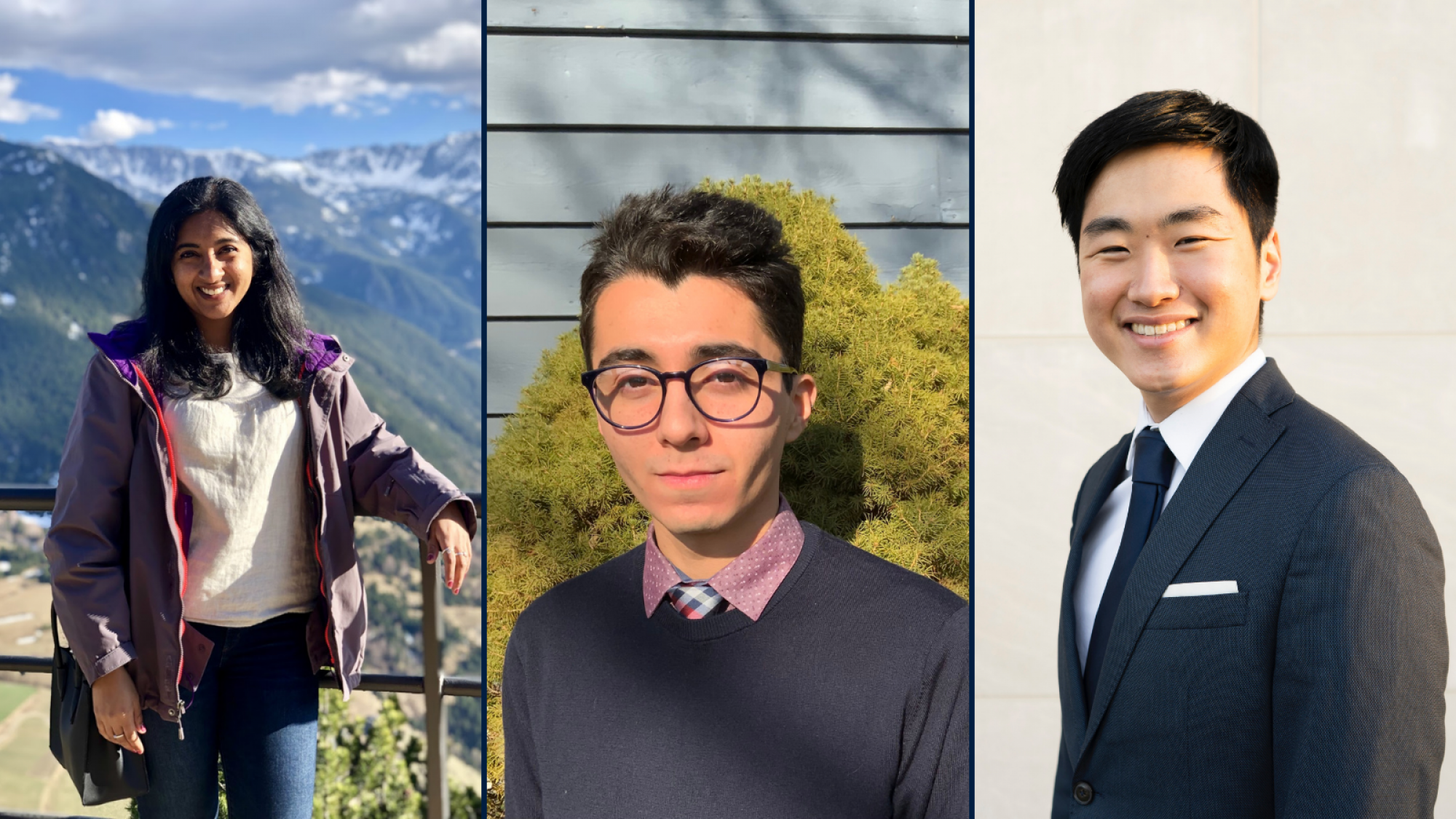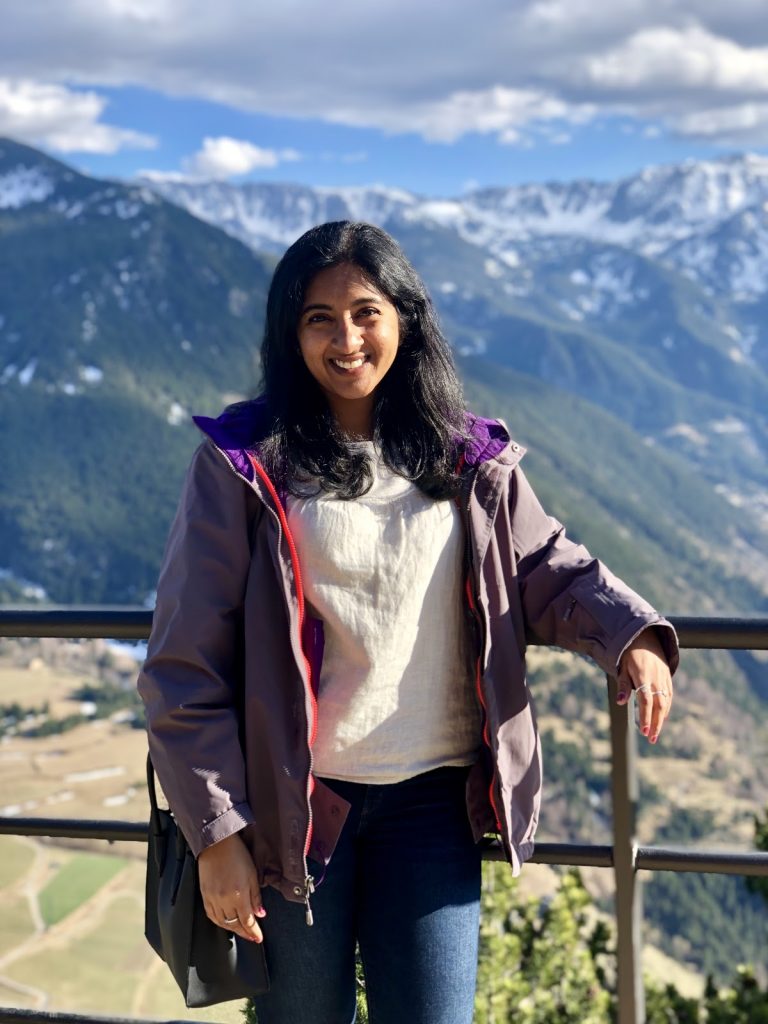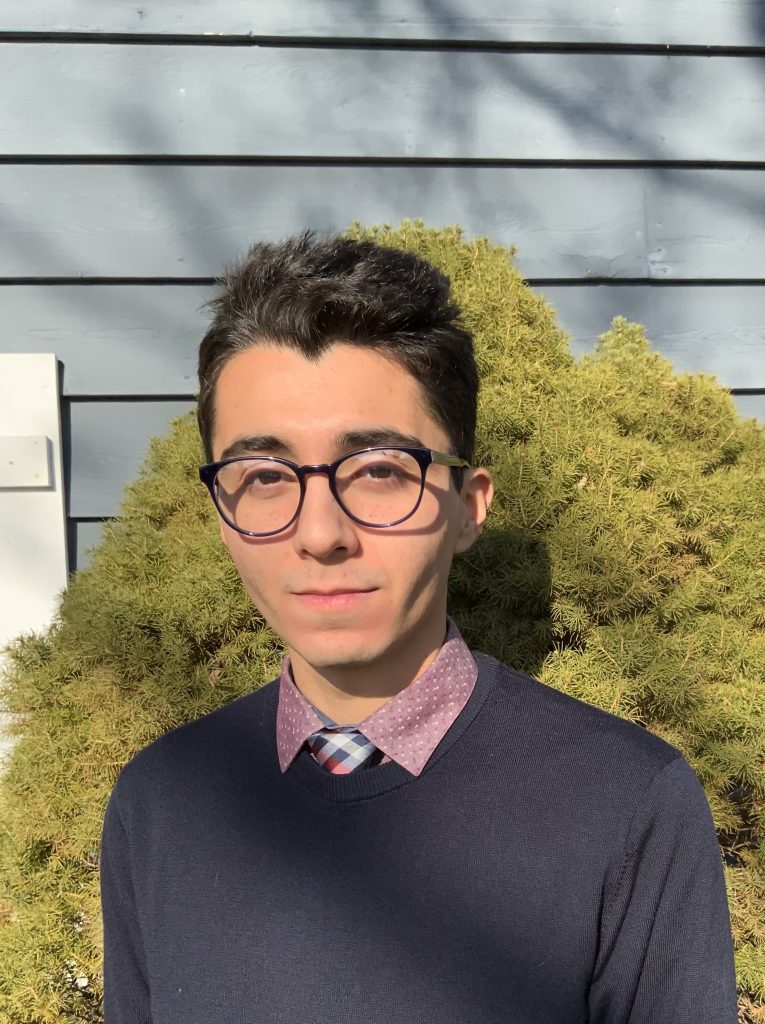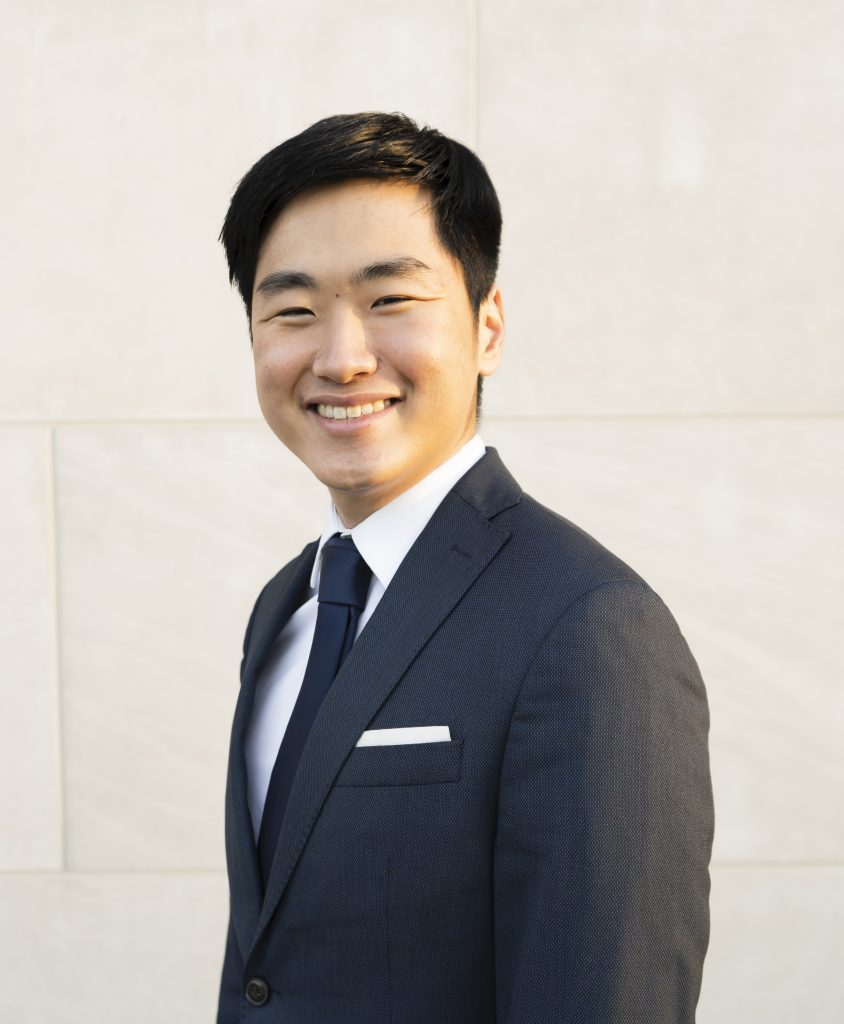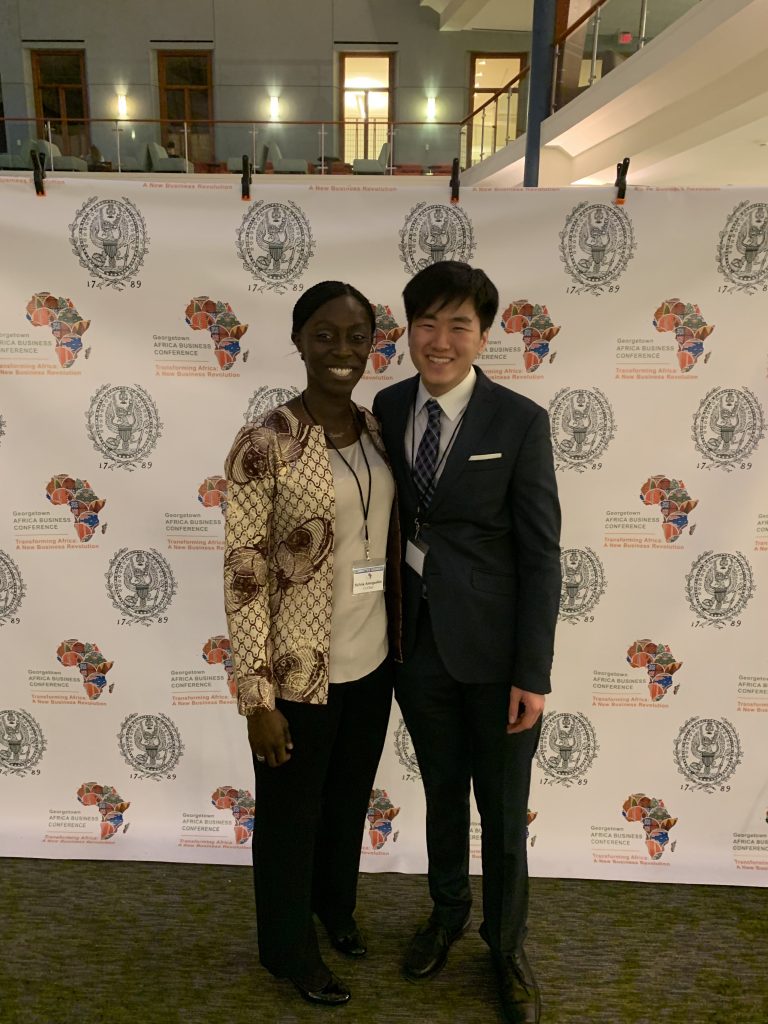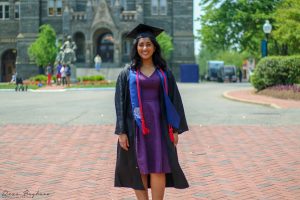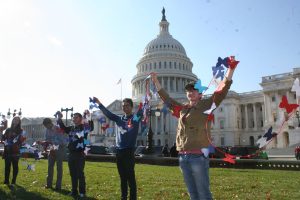As the largest feeder school into the U.S. Foreign Service, the School of Foreign Service (SFS) is a top destination for undergraduate students looking to pursue diplomatic careers. This year, one SFS senior and two alumni will continue that legacy as recipients of the prestigious Thomas R. Pickering Foreign Affairs and Charles B. Rangel International Affairs Graduate fellowships.
Alejandro “Alo” Garcia Escobar Plascencia (SFS’21) and Isaac Kim (SFS’20) are among this year’s Rangel Fellows, while Piyusha Mittal (SFS’18) received a Pickering Fellowship for 2021. Piyusha will join Georgetown alumnus Said Bilani (SCS’20) in the 2021 Pickering cohort.
“Since our founding, SFS has produced talented and committed graduates who have dedicated themselves to diplomatic service for the United States and their home countries around the world,” says SFS Dean Joel Hellman. “We are proud of this new group of SFS awardees, who will follow many SFS Hoyas before them in contributing to the diversity and dynamism of the State Department through the Pickering and Rangel fellowships. I wish them all the best as they prepare to represent our nation on the world stage.”
Both fellowships prepare students for careers as foreign service officers by providing financial support for two years of graduate study in international affairs, as well as mentoring and career development opportunities, including two internships for fellows as they prepare for diplomatic service. The programs aim to promote greater diversity within the U.S. State Department and welcome applications from groups underrepresented within the agency, including people of color, women and those with financial need.
The recipients will receive appointments as foreign service officers following their graduate study and have committed to a minimum of five years of service at the institution.
